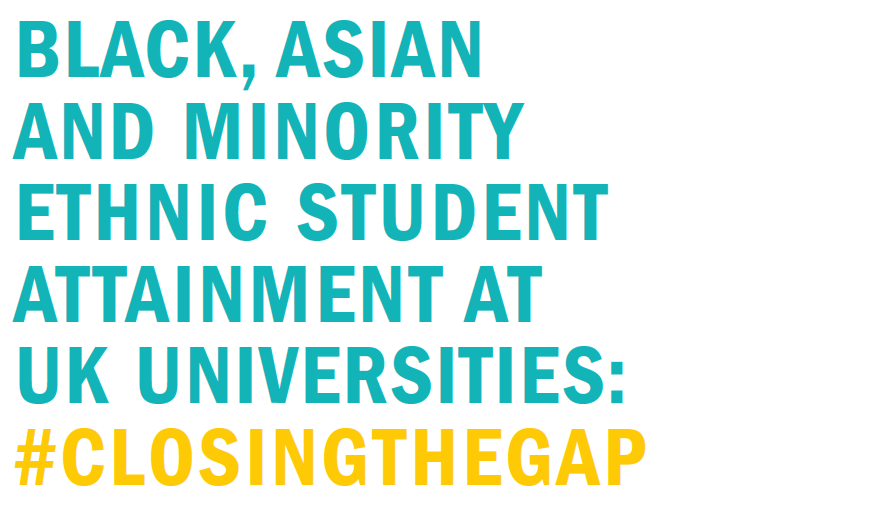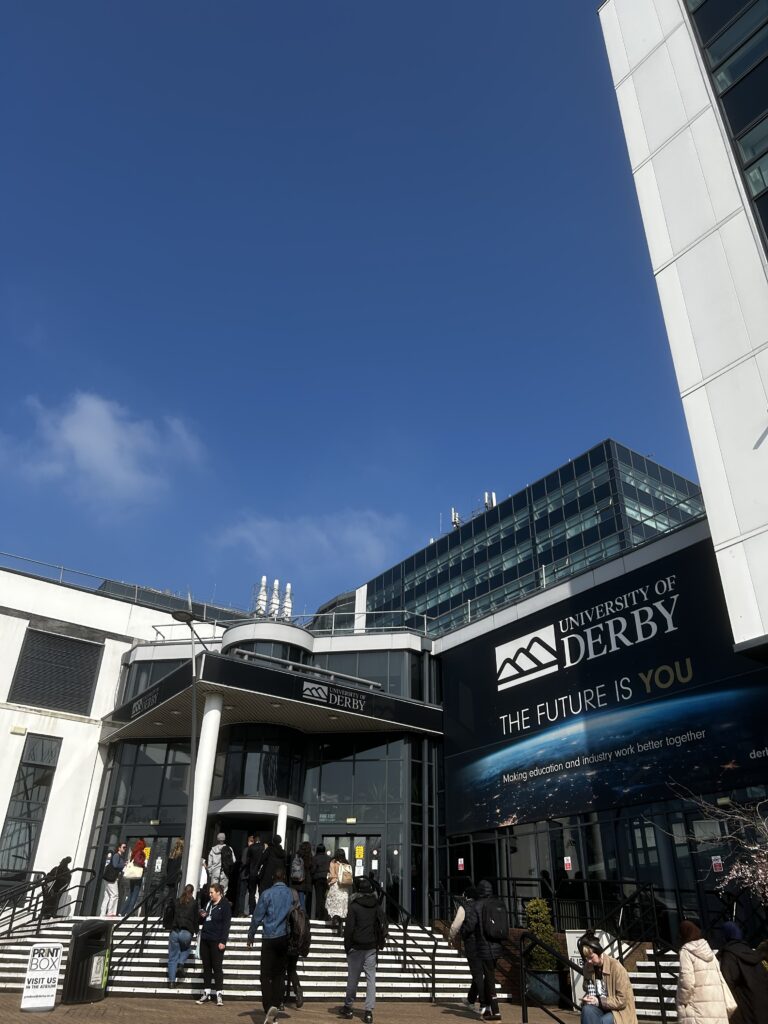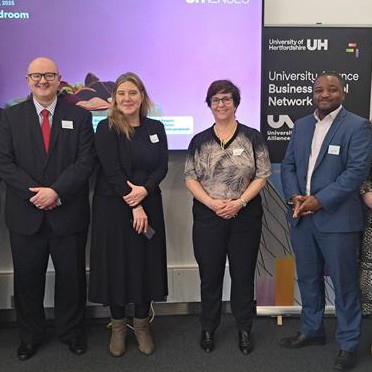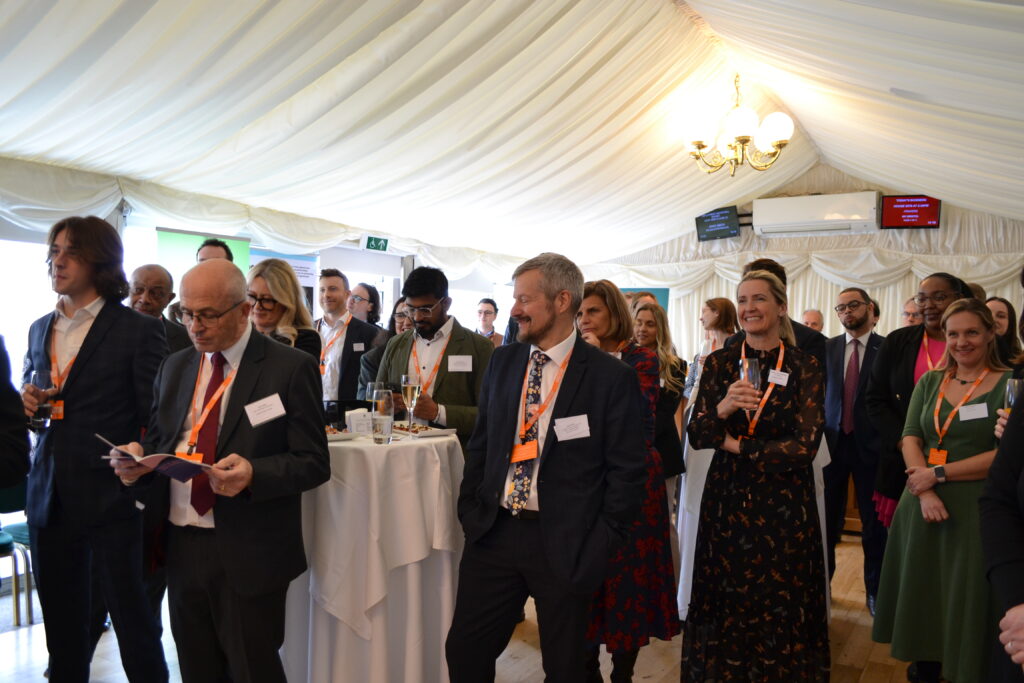University Alliance was represented by three member Vice-Chancellors on the advisory panel for the Universities UK and NUS’s report
“Black, Asian and Minority Ethnic Student Attainment at UK Universities: #ClosingtheGap”
The report also highlights projects by University Alliance members.
Kingston University Vice-Chancellor Steven Spier
“It shouldn’t need stating, but it is simply unacceptable that race and ethnicity should have any bearing on how well a student does in their degree. Unlocking potential and advancing knowledge are surely the key missions of higher education – and these must be regardless of a person’s background.
“Yet the stark reality is, white students graduating in 2017-18 were 13 per cent more likely to achieve a first or 2:1 degree than those from BAME backgrounds. As Baroness Amos says in her introduction to the report, we can’t afford to be complacent about this inequality any longer.
“The spotlight needs to be put on this issue and the recommendations set out by UUK and the NUS provide a useful framework for the sector as a whole to tackle it”.
See full blog by Professor Spier published on Wonkhe.
UWE Bristol Vice-Chancellor Steve West
“I very much welcome this report and am pleased to sign the pledge on behalf of UWE Bristol. We recognise there are significant challenges, not just in higher education. At UWE Bristol we are committed to achieving an inclusive culture where all can thrive and flourish. The BAME attainment gap is one area we are focusing hard on and I am very proud of the impact we are already having through our award-winning Equity Programme. This report certainly helps as we push this work forward, creating opportunity and transforming futures.”
University of Hertfordshire Vice-Chancellor Quintin McKellar
“As a result of the previous initiatives we have put in place to reduce the attainment gap over the past eight years, we have seen a 10% reduction in the University’s attainment gap between white and BAME students since 2009. Our University has excellent rates of progression to employment overall, and the latest results show that our undergraduate BAME students achieved an above benchmark average for being in employment or further study six months after graduation. However, there is more to be done, across the sector as a whole, which is why I’ve been involved in working with Universities UK and the NUS to develop recommendations to help universities close the attainment gap further.”
CASE STUDIES
The UUK/NUS report highlighted University Alliance members’ work to reduce the attainment gap between white and black, Asian and minority ethnic students.
KINGSTON UNIVERSITY LONDON
Kingston University London adopted the reduction of the BAME attainment gap as an institutional KPI following a recommendation by the vice-chancellor and with the endorsement of the university’s board of governors on 4 March 2015.
The KPI was to raise the BAME value-added (VA) score to 1.0 by the end of the 2018–19 academic year. The university has almost met this VA score a year ahead of target.
VA scores take account of a student’s entry qualifications and subject of study when assessing their degree attainment. Data for UK-domiciled graduates is used to create a probability that a student will achieve a first- or upper-second-class degree. These probabilities are aggregated to create an ‘expected’ percentage of a given cohort of students who should achieve a first or upper second.
If the cohort achieves this percentage, the VA score is 1. For percentage attainment above or below this percentage, the VA score is proportionately greater or less than one.
The university’s comprehensive approach to tackling BAME attainment has resulted in significant improvements to the institutional VA score for BAME learners and a reduction in the BAME attainment gap. To challenge itself further Kingston has developed a new KPI to increase the proportion of full time first degree qualifiers taking a course on which the BAME students meet or exceed sector expectations based on their entry qualifications and their subject of study. This reflects Kingston’s commitment to measuring progress at course level and ensuring that all students are supported to achieve their academic potential.
Kingston is now leading on a project with the University of Hertfordshire, University of Wolverhampton, University of Greenwich, De Montfort University and UCL, funded by the OfS, to start extending the VA dashboard across the sector.
UNIVERSITY OF HERTFORDSHIRE
In 2017―18, the University of Hertfordshire and Hertfordshire Students’ Union employed 10 BAME student advocates to support an institutional objective to reduce the attainment gap. One student was hired for each school to represent the voices of their BAME student peers. The students are line managed by a race equality project officer. Key elements of this programme include:
― creation of dedicated spaces for BAME students and the dissemination of data associated with the BAME attainment gap to students
― facilitation of dialogue with staff members to address issues BAME students face.
Hertfordshire has also held inclusive practice workshops with over 37 academic programme teams. The workshops included:
― presentation of national, institutional and programme-level value-added (VA) data to enable consideration of attainment gaps
― inclusive curriculum enhancements, and discussions on implicit bias and compassion-focused pedagogies
Whilst the project is ongoing, 11 case studies of good practice have been published (Leadership Foundation for Higher Education, 2017) and changes made to the university’s annual monitoring and reporting mechanisms at programme level. All undergraduate programmes now comment on attainment gaps (as measured by VA scores) within their annual monitoring reports, and programme actions plans must identify activities to reduce any gaps.
UNIVERSITY OF BRIGHTON
The University of Brighton established its Widening Participation Achievement Team (WiPAT) in January 2017 to lead on its institutional approach to student retention, success and progression. The project work includes:
― using course-level attainment-gap data analysis to start conversations with academics and examine student intersectionalities
― developing the student success framework
― planning Advance HE unconscious bias workshops for academic staff
― revising the definitions of inclusivity and inclusive practice
― conducting an anonymous marking pilot
― working in partnership with the students’ union.
A further £75,000 of funding is committed for 2018–19 for initiatives and interventions that are directed at the BAME attainment gap, funded from access agreement funds. The University of Brighton has seen a reduction of 6% over three years in the BAME attainment gap and 8% in the Black attainment gap.
UNIVERSITY OF PORTSMOUTH
The University of Portsmouth’s Raising Awareness and Aspiration project assessed the impact of personal tutoring on reducing the attainment gap.
It is funded by the OfS from 2017 to 2019, in partnership with the University of Sheffield and King’s College London. Portsmouth has built, piloted and successfully rolled out a personal tutoring platform in 2018.
The platform enables all personal tutors to connect with their personal tutees, with a specific focus on personally welcoming all BAME students and, through both individual and group activities, opening opportunities for them to make friends with their peers.




